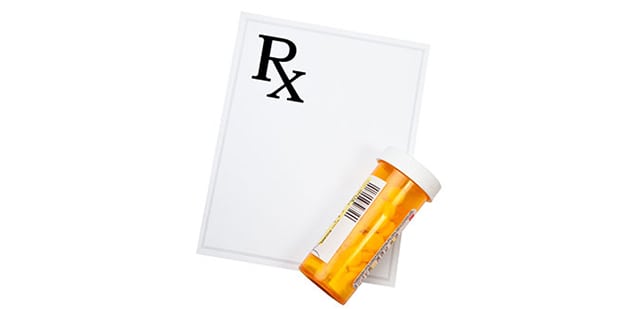
Return to your life quickly and addiction-free with outpatient rapid detox.
Overcoming an addiction to prescription drugs can be difficult or even impossible if you do not utilize the proper resources such as outpatient opiate detox. Going cold turkey on your own or even checking yourself into a rehabilitation facility can:
- Fail to put you on the path to recovery
- Set you up for relapsing at some point in the future
CONTACT US TODAY
When you want a better chance at beating your addiction while avoiding the discomfort and panic that accompany withdrawals, you may be a good candidate for an outpatient opiate detox program. This program can be the fastest and most effective way to overcome your addiction to prescription medications and spare yourself the severest physical and emotional side effects that come with drug detoxing.
Defining Outpatient Opiate Detox
What is outpatient opiate detox and how does it differ from other drug rehabilitation programs available today? Rapid opiate detox is relatively new to the drug rehab industry. Invented in 1988, it focuses primarily on the medical aspects of detoxing patients’ bodies of prescription opiates like hydrocodone, oxycodone, and suboxone. It can be used in conjunction with other narcotic recovery programs like Narcotics Anonymous, group therapy, or individual counseling.
It also is designed to shorten the detox process and protect patients from the most significant physical and emotional side effects of drug withdrawals. The procedure is only carried out in hospitals or surgical centers. Doctors administer the in the patient’s room at the surgical center.
From start to finish, the rapid detox process takes a few days to complete. Patients are sedated for 30 to 90 minutes. During the time that they are sedated, they will be given an opiate antagonist medication called naloxone. After they awake from their sedation, they will stay under observation and monitoring until they are discharged from the hospital.
Patients must remain in the surgical center and will not be allowed to leave until their medical team is sure that they are physically and emotionally stable. When carried out successfully, the detoxification eliminates patients’ craving for opiates and rids their bodies of the medications to which they were addicted.
Considerations Before Going Through Opiate Detoxification
Before you agree to undergo this rapid opiate detoxification, you should consider some important details that could impact your readiness and availability for the treatments. The process for the detox begins with you undergoing a full physical examination to determine if you are healthy enough for the procedure. It is important that you are healthy and free from conditions like high blood pressure or heart failure. If you have a serious health condition, you may be prevented from undergoing the detoxification process.
Likewise, your medical team will want to know about any medications that you take so that they know if you will tolerate the naloxone and other medicines used in the detox. If you are on medications that could negatively interact with the opiate antagonist, you may need to consider another drug treatment option.
Another important consideration that you should keep foremost in your mind centers on making sure you receive your treatment at an accredited center. As noted, this procedure can only be carried out in a surgical care center. It is not offered to patients in doctors’ offices, or even drug rehabilitation facilities.
Finally, you should remember that you will need to clear a few days from your schedule to allow for the entire detox treatment. You will not be allowed to leave the surgical center prematurely nor can you shorten the process. Your medical team needs at least two to three days to monitor you for side effects that could range from emotional distress to physical pain. They can respond to your specific medical needs and ensure that your detoxification is complete before you are allowed to go home.
Other Tips About Rapid Opiate Detoxification
As you may understand from the information provided, you may realize that rapid opiate detoxification is unlike other drug rehabilitation programs on the market. Because it is unconventional and still relatively new, it is not covered by most insurance companies. It also tends to be costlier, which is why you should be prepared for the financial obligations of the procedure before you commit to it.
However, while it is not covered by many insurance companies, the outpatient opiate detox process does allow for more confidentiality and privacy. Because you are paying for it out-of-pocket, you are assured of higher levels of discretion, which can be a plus if you want to prevent others from knowing that you are undergoing the treatment.
Another fact that you should keep in mind involves the sedation aspect of the procedure. As noted, you will be briefly sedated instead of put under general anesthesia. While the naloxone will detox your body of the opiates to which you are addicted, you can expect to experience a minimal amount of withdrawal. Your doctors and nurses will be on hand to treat your physical and emotional side effects, however, to ensure that your post-procedural symptoms do not compromise your recovery.
Finally, you are encouraged to use this detox procedure in conjunction with another form of outpatient narcotic recovery services. You may have better success and resist the urge to use again if you pair it with counseling, group meetings at Narcotics Anonymous, or another outpatient program. While the rapid opiate detoxification will eliminate your body’s physical cravings for the drugs, you should still address any emotional factors that contributed to your addiction.
Prescription medications like oxycodone, hydrocodone, suboxone, and other opiates are extremely addictive. People who are dependent on them often find it difficult to wean themselves from these substances. Rather than go cold turkey or risk relapsing after going through a drug rehab program, you may eliminate your body’s craving for these drugs by going through an outpatient opiate detox procedure. This surgically based treatment option could be the fastest, most effective, and safest way to detoxify your body of the opiates to which you have become addicted.




